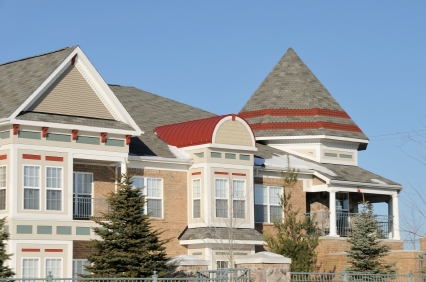 Nevada nursing home laws aim to provide patients with safe, comfortable, and sanitary living conditions. Under Nevada nursing home laws, facilities are required to achieve the highest applicable wellbeing for each patient. This includes care that meets each patient’s individual needs, as well as the patient’s right to remain free of abuse, neglect, or the administration of improper care. The State of Nevada Aging and Disability Services Division oversees certain regulations for Nevada nursing homes.
Nevada nursing home laws aim to provide patients with safe, comfortable, and sanitary living conditions. Under Nevada nursing home laws, facilities are required to achieve the highest applicable wellbeing for each patient. This includes care that meets each patient’s individual needs, as well as the patient’s right to remain free of abuse, neglect, or the administration of improper care. The State of Nevada Aging and Disability Services Division oversees certain regulations for Nevada nursing homes.
Patient Plan of Care
Each patient must receive a comprehensive plan of care. The plan of care is in place to ensure that the patient attains or maintains the highest practicable mental, physical, and psychosocial wellbeing. Nevada nursing home laws require that measureable objectives and timetables are in place to facilitate the patient’s treatment in accomplishing these goals.
The plan of care must be prepared by an interdisciplinary team. This team must include the patient’s physician, a registered nurse responsible for the patient’s care, and other nursing home staff members who provide services to suit the patient’s needs. The patient, patient’s legal representatives, and patient’s family members may all participate in developing the plan of care.
Elder Abuse Training Requirements
The 2011 Legislative Session established specific elder abuse training requirements under Senate Bill (SB) 129. Under SB 129, these requirements apply to existing licensees and new applicants of facilities for skilled nursing homes, intermediate care, and other special care facilities.
Additionally, elder abuse training requirements were put in place for all new employees, administrators, and directors of these facilities. Nevada nursing home laws also require annual training for existing employees, administrators, and directors.
Elder Abuse Definition
Under Nevada nursing home laws, elder abuse is defined as any intentional, knowing, or negligent act by a nursing home caregiver or other person that subjects an older person to harm or the serious risk of harm. Nevada nursing home laws define an older person as one aged 60 or older.
Nevada nursing home abuse laws define five types of elder abuse:
- Abuse—the unjustified and willful infliction of injury, pain, or mental anguish; deprivation of shelter, food, clothing, or services that are necessary to maintain the patient’s mental or physical health
- Neglect—intentional or unintentional failure to provide clothing, food, shelter, or services such as personal hygiene and medical care when a duty to provide these services has been established
- Self-neglect—failure of older persons to provide for their own needs because of an inability to do so; not a crime, as elders reserve the right to make their own choices unless declared incompetent by a judge
- Exploitation—violation of a trust-based relationship that involved intimidation, deception, or undue influence; an attempt to control a patient’s money, assets, or property with the intent of permanently depriving the patient of these assets
- Isolation—intentionally preventing elders from receiving phone calls, mail, or visitors, unless medically or legally contraindicated; the use of physical restraint to prevent visitation
Standards and Quality of Care
Nevada nursing home laws require baselines standards of care to ensure that patients receive adequate treatment and attain the highest practicable wellbeing. Under Nevada nursing home laws, patients must be provided with 24-hours access to health services pertaining to treatment, diet, medications, and specialized health care. A registered nurse who is licensed in Nevada must be employed full-time in each nursing home.
Nutritional Health
Nevada nursing homes must comprehensively assess the health of each patient. Based on this assessment, the facility must maintain the patient’s nutritional health, including the patient’s weight and protein levels. Limitations may be in place in the event that the patient’s medical condition prevents adequate assessment of nutritional health. The nursing home must provide patients with a therapeutic diet if necessary. Sufficient fluids must be provided so that proper hydration is maintained.
Hygiene and Sanitation
Under Nevada nursing home laws, each facility must provide patients with a safe, sanitary, and comfortable environment that prevents the development and transmission of infection and disease. The facility must maintain a program for infection control. Nursing homes are required to ensure that patients do not develop pressure sores, or bed sores, unless medically avoidable.
Sources:
“Elder Abuse Training.” Nevada Department of Health and Human Services. State of Nevada Aging and Disability Services Division. Web. 22 May 2013. http://health.nv.gov/HCQC/SB129ElderAbuseTrainingforWebsites.pdf
“Health Facilities.” Nevada Department of Health and Human Services. State of Nevada – Nevada State Health Division, 26 Nov 2012. Web. 22 May 2013. http://health.nv.gov/HCQC/SB129ElderAbuseTrainingforWebsites.pdf
“Rules and Regulations for Facilities for Skilled Nursing.”University of Minnesota. State of Nevada, 11 Jun 2007. Web. 22 May 2013. http://www.hpm.umn.edu/nhregsplus/NHRegs_by_State/Nevada/NV Complete Regs.pdf
